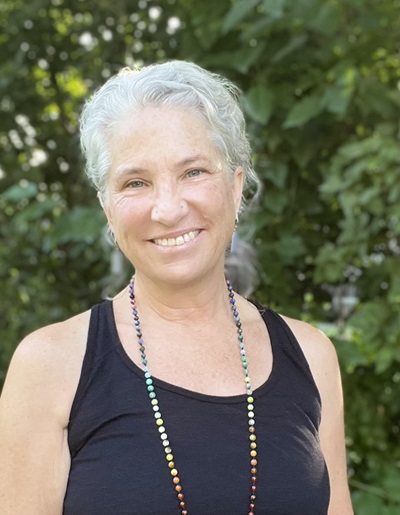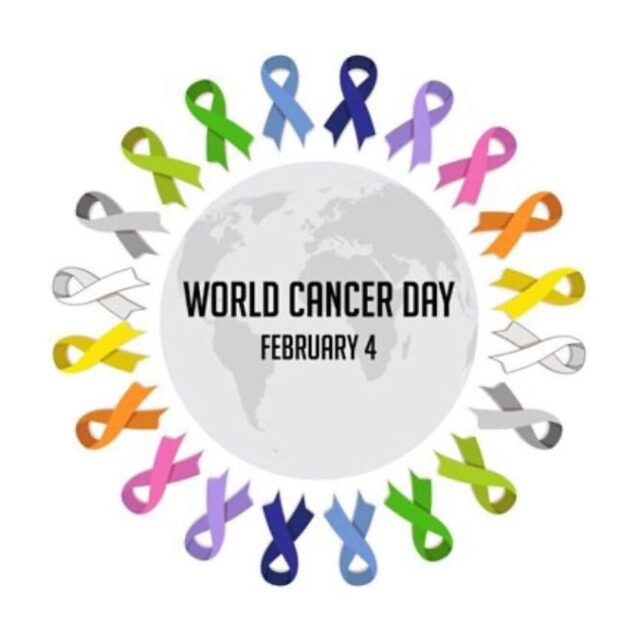By Amy Diana Ramirez
Boulder County, Colorado (The Hollywood Times) 02/02/2024 – “Such an honor to be trusted in supporting women through their cancer journey” – Stacey Gilbert, LMT, CMLDT, February 4, 2024
“It’s CANCER“. These are words we never want to be uttered concerning our health status. Unfortunately, cancer is vastly common; according to Medical News Today, “In the US, 1 in 2 women and 1 in 3 men will develop cancer in their lifetime”. Cancer research in the UK reflects the same unfortunate numbers. In 2020, there were an estimated 18 million cancer cases around the world. [The data is taken from the Year 2020, which is the latest year available.] With so many people being stricken with malignant growths, what is it like walking through cancer in the Year 2024? We all know that cancer has the potential to kill us. We know that chemotherapy – aka “chemo” is the standard treatment in many cases, as well as the surgical excision of tumors. Have there been breakthroughs since these rather barbaric methods were made the standard of care? Certainly, as well as new programs to help cover the steep costs associated with cancer care – now referred to as “Financial Toxicity”. Financial toxicity is a term used to describe the harmful effect of high cost of treatment on a person’s quality of life. It may also be described as a financial burden or financial distress. Patients are bankrupting themselves trying to survive.
The most noted breakthrough in cancer care is Immunotherapy. This newer treatment alters how the immune system operates so that it is more targeted and attacks cancer cells rather than every cell of the body that it reaches. Immunotherapy can be given by infusion, by pill, topically, or injected directly into the affected organ. In certain cases, immunotherapy is all that is needed to treat one’s cancer (for example, Keytruda being used as monotherapy for malignant melanoma) and it seems to come with far fewer side effects than traditional chemotherapeutic infusions do.
Other great breakthroughs include cutting-edge surgical options in breast surgery such as nipple-sparing mastectomies. In situations when the nipples can’t be spared, they can later be recreated by grafting skin that is turned inside out. Breasts can be entirely rebuilt, even after radical mastectomies have taken place. Remarkable advances have been made in treating – and preventing – virtually every type of cancer on the planet. Even daily low-dose aspirin is being used in clinical trials to prevent women with benign breast tumors from developing cancer.
More good news is that certain chemotherapy regimens can be taken in pill form. Better still, sometimes chemo pills are dosed metronomically – at lower doses, sometimes for longer periods which makes for a less toxic situation for the body, so the side effects are less extreme. One chemotherapy pill used today is named Xeloda; the active ingredient is Capecitabine, sometimes referred to by oncologists as “Cap”, though pronounced like “cape”. According to various sources, it works on several different, difficult-to-treat cases including some with rectal cancer,
Cholangiocarcinoma, advanced pancreatic carcinoma, plus triple-negative breast and lung cancers. One significant win with the “cap” is that it doesn’t cause complete hair loss. Its main side effects are gastrointestinal distress and Hand & Food syndrome. More serious long-term damage like neuropathy seems to be far less common than with traditional chemo.

Many newly diagnosed patients do not realize that such options are available, rather than undergoing tedious, sometimes painful infusions. What’s worse than the tedium is that infusions often require that a port be surgically implanted into one’s chest or upper arm so that multiple veins are not subjected to constant needling (and subsequent collapse). Swallowing a pill takes seconds whereas certain chemo infusions can take an hour or more to complete. Taking pills proves to be far less traumatic to the patient.
Globally, the most common cancer is breast cancer in females, though males can be stricken with it as well. [Unfortunately, male mammograms are rarely covered by insurance.] Depending on the stage of cancer, breast cancer tends to require surgery: either a lumpectomy to spare the breast, a mastectomy, or a double mastectomy, plus lymph node excision may be necessary), radiotherapy, chemotherapy, immunotherapy, endocrine therapy, targeted drugs, or some combination of these treatments. After a pathological Complete Response (pCR) is declared, active surveillance is strongly advised because some cancers resurface in a much more advanced stage (metastasizing and spreading throughout the body). Even Stage IV cases can live good quality lives with today’s treatments.
Of all the known breast cancers in existence, the most lethal form known today is named Triple Negative Breast Cancer (TNBC) or Triple Negative Invasive Ductal Carcinoma. A milk duct essentially goes bad. Oddly enough, this type of cancer is not fed by hormones. [There is also a Triple Negative Lung Cancer.] Endocrine (hormone) therapy is ineffective on Triple Negative cancer and, in many cases, chemotherapy fails to deliver a pathological Complete Response (pCR). What is known as “chemoresistance” can occur. Then sometimes the phenomenon of “overtreatment” manifests and the patient’s quality of life is ruined by undergoing more excruciating therapy than necessary. As mentioned, chronic diseases can come about from chemotherapy infusions in particular: heart damage, destruction of the skeletal structure, cognitive impairment (aka “chemo brain”), liver damage, and disorders of every bodily system, premature frailty; a cascade of health issues tend to arise, sometimes impacting a patient’s autonomy. The cells also go through an accelerated aging process (“pro-aging”). Many patients believe that chemo (by infusion) aged them, visually, by many years over mere months.

Perhaps for some of these reasons, the astute physician Kevin Brown, MD, became an Integrative Oncologist, He founded his practice, Spring Trail Oncology, in Lafayette, Colorado in May of 2023. Brown views medicine with a whole-person approach, spending substantial time with each patient upon intake, addressing matters of lifestyle factors that may have contributed to the development of cancer, and encouraging them to make adjustments that can prevent a relapse. Before the first meeting, an extensive intake packet is filled out by his patients. It asks a great number of questions that one would not ordinarily be asked in an intake. The patient records a deep dive into their genetic background, bodily systems, and many other areas that seem to be neglected by traditional medicine. Brown then carefully customizes a treatment plan for each patient. When appropriate, he informs his cancer patients about a blood test that was invented that detects residual disease in the body. This new age test is called the Signatera. After drawing blood from the patient at their own home, their blood is compared with the tumorous tissue that was taken out during surgery. A probe is created that seeks out any remaining DNA from the tumor circulating in the bloodstream. Although it takes a month to receive a positive or negative result, this test can provide valuable information about cancer’s remission or its return, at least nine months earlier than a PET scan can show cancerous activity or growth.

A holistic approach to handling patients is also taken by an organization called Roberta’s Legacy, which is located within Longmont United Hospital in Longmont Colorado. Approximately thirty patients are walking through breast cancer in Boulder County, under the wing of this organization, which is named after Roberta Lozinski. According to director/spokesperson Amy Willard, “Roberta passed away from breast cancer in 2015. Her family wanted to continue her legacy of compassion, giving, and support for those battling the same thing she had gone through. Roberta’s Legacy was founded in 2017 with the hope of helping two people per year. Since its inception, the organization has walked alongside over 100 families. Roberta’s Legacy has a relational, not transactional approach and builds relationships with all of those families, helping with things like mortgages, medical expenses, electricity bills, wigs, cleaning services, car insurance, and so much more”. – Amy Willard, February 2, 2024.
Even full body massages are offered by Roberta’s Legacy Stacey Gilbert through the organization. She specializes in oncology massage therapy.

During the holidays of 2023, thirty women received an overflowing stocking full of great, useful items from Roberta’s Legacy. Each stocking arrived with a handmade quilt and included a knit beanie made by volunteers. Even a generous amount gift card was tucked inside each stocking, to offset expenses that tend to increase in December, particularly when one is being treated for cancer. Many of these gifts from the organization were personally delivered to the patients in the region.
Perhaps you are wondering how you too can personally support a cancer patient. For starters, when referring to the struggle involved in getting well, you might consider omitting the commonly used war vernacular associated with cancer stories. So often, obituaries make statements like “he/she lost their battle with cancer”, but this isn’t typically the case with other fatal diseases or infections that can kill a person. At its surface, it seems such language would be empowering and motivating to a patient who is about to start an aggressive treatment, but this is not necessarily helpful in practice; designating cancer patients as winners, losers, and fighters is unfair when they may have little control over their outcome. Some will wind up feeling like failures if the cancer metastasizes, despite undergoing everything that the oncologist prescribed.
You can support patients hit hard by the financial toxicity of cancer by starting a GoFundMe account for them, or by arranging food deliveries to their homes. You can be a wonderful support simply by listening to them, wholeheartedly, or you might share encouraging words over social media.
If you are a cancer patient yourself, first voraciously research all treatment options for your type of cancer. Second, trite as this may sound, make an effort to stay positive. Dwell on the good aspects of your life rather than the negatives or engaging in catastrophizing. Third, use a journal to document your symptoms to document your unique experiences with cancer. Consider writing a bucket list and reprioritizing your life. Chase circulating thoughts with a pen, even if they are negative – at least the negative thoughts will go somewhere other than your head. Waste no time hesitating to get what you want out of life, even if the new paradigm includes less living time than previously assumed. Last, remember that you are not alone. This is a worldwide problem, and there is a surprising level of support available for those affected by cancer. With newer treatment options, the total-person approach, and personally supportive organizations like Roberta’s Legacy, chances are you will survive cancer and thrive again.
If you would like to support Roberta’s Legacy, please follow the link below.
https://robertaslegacy.networkforgood.com/projects/191995-website-donations
[100% of donations go directly to assisting those who are walking alongside breast cancer. – Willard, February 2, 2024.]





